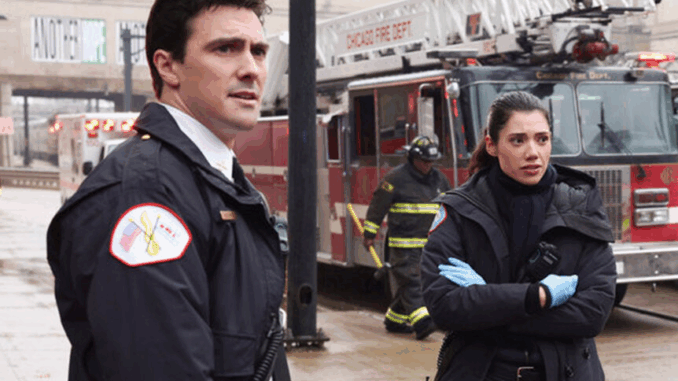
Season 13 of Chicago Fire has marked a turning point not just for the show itself, but for the entire One Chicago universe. With major character exits, a noticeable shift in leadership, and an evolving narrative style, the series is undergoing a transformation—one that signals a bold new era in both tone and storytelling.
Rather than leaning heavily on fast-paced procedural plots, Season 13 pivots toward a more introspective, character-driven format. The emphasis has shifted from weekly emergencies to emotional reckonings, long-simmering tensions, and backstories that finally get the space to unfold. The pacing is more deliberate, the stakes more personal, and the arcs more layered—elevating Chicago Fire from a crisis-of-the-week format into a deeper exploration of human resilience and team dynamics.
Perhaps the most impactful change this season was the departure of Chief Wallace Boden, a character who has anchored Firehouse 51 for over a decade. Eamonn Walker’s commanding presence was a constant, and his exit at the end of Season 12 sent shockwaves through the team. Though he returned for a powerful guest appearance in the Season 13 episode “Post-Mortem,” it served as a farewell bridge for long-time fans—symbolically passing the torch while acknowledging his legacy.
In Boden’s place steps Chief Dom Pascal, played by Dermot Mulroney, whose leadership style contrasts sharply with his predecessor’s calm, unifying presence. Pascal is more rigid, more disruptive, and already creating new tensions within the house. While some team members are still adjusting, Pascal’s arrival signals a shift toward more unpredictable, friction-heavy internal dynamics—forcing characters to navigate not only fires in the field but conflicts at home base.
Season 13 also reintroduces One Chicago crossovers—but with a twist. Instead of high-octane spectacle, these interconnected episodes focus on emotional continuity and psychological fallout. A prime example is the standout crossover episode, “In the Trenches,” which brought together Chicago Fire, Chicago Med, and Chicago P.D. in a narrative centered on shared trauma and interdepartmental trust. Stripping away the gloss of action for raw human emotion, the episode marked a tonal shift—showing the franchise’s capacity for nuanced, grounded storytelling.
This new direction isn’t just a reinvention—it’s a refinement. By leaning into character complexity, moral ambiguity, and emotional depth, Chicago Fire is not only keeping pace with evolving TV audiences but also leading the charge within its genre.
As Season 13 closes and Season 14 looms on the horizon, one thing is clear: Chicago Fire is no longer just a procedural drama. It’s becoming a character epic—one where leadership changes, emotional scars, and personal triumphs matter as much as the fires they fight.